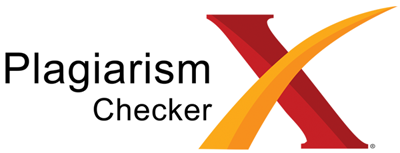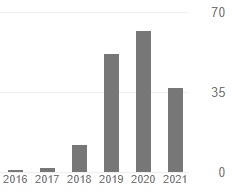The Use of Contextual Models in Improving Student Learning Outcomes and Social Skills in Science Learning in Junior High Schools
Abstract
This Research is motivated by the low learning outcomes and low social skills of students in science learning. The reality in the field is that students experience difficulties in understanding concepts about inheritance material and the difficulty of students communicating, collaborating in discussion activities during learning. The aim of the research is to improve student learning outcomes and social skills in the matter of inheritance in natural science subjects. This study uses a contextual model with 2 cycles. Based on research results on the use of contextual models can improve learning outcomes and students' social skills in learning natural sciences at SMP Negeri 1 Percut Sei Tuan. This is evidenced by the acquisition of student learning outcomes increasing in each cycle and exceeding the Minimum Completeness Criteria (KKM) score limit of 75. The number of students who completed the first cycle was 18 students (5 6.25 %) and those who did not complete their studies 14 students (43.75 %). After making improvements in cycle II, the percentage of students' learning outcomes was increased by 87.50 % and only 4 students who had not finished with a percentage of 12.50 %. In cycle I students' social skills for aspects of working with friends 75%, aspects of showing social responsibility 62%, aspects of controlling emotions 40.63%, aspects of interacting with others 43.75%, aspects of participating 59.38%, cultivating sportsmanship, discipline and healthy living 51.56%. After implementing improvements in cycle II there was a significant increase in aspects of working with friends (95.31%), showing social responsibility (87.5%), controlling emotions (56.25%), interacting with other people (93.75 %), participating (82.81%), cultivating sportsmanship, discipline and healthy living (62.5%), writing opinions/ideas (73.44%), leading (70.31%).
Keywords
Full Text:
PDFReferences
Adang H, Darmaji, & Arip S. (2012). Metodologi Pembelajaran Kajian Teoritis Praktis Model, Pendekatan, Strategi, Metode, dan Teknik Pembelajaran. Banten: LP3G.
Ahmadi, A. (2004). Sosiologi Pendidikan. Jakarta: Rineka Cipta.
Depdiknas. (2009). Pengembangan Model Pendidikan Kecakapan Hidup. SD/MI/SDLB – SMP/MTs/ SMPLB – SMA/MA/SMALB/ SMK/MAK.
Depdiknas. (2009). Pengembangan Model Pendidikan Kecakapan Hidup. Jakarta: Balitbang, Pusat Kurikulum.
Dudung, A. (2018). Kompetensi profesional guru (suatu studi meta-analysis desertasi pascasarjana UNJ). JKKP: Jurnal Kesejahteraan Keluarga dan Pendidikan, vol 5 (2). http://doi.org/10.21009/JKKP.
Fauzi,I. (2018). Etika Profesi Keguruan. Jember: IAIN Jember Press.
Kadaryanto, (2007). Biologi 3. Jakarta, Yudhistira.
Komalasari, K. (2010) Pembelajaran Kontekstual Konsep dan Aplikasi. Bandung: PT Refika Aditama.
Mulyono, A (2018). Anak Berkesulitan Belajar. Jakarta: Rineka Cipta.
Trianto. (2007). Model-model Pembelajaran Inovatif Berorientasi Konstruktivistik. Konsep, Landasan Teoretis – Praktid dan Implementasinya. Jakarta: Prestasi Pustaka Publisher.
Vallori, A.B. (2014). Meaningful learning in practice. Journal of Education and Human Development, 3(4), 199-209.
Warsono & Hariyanto. (2013). Pembelajaran Aktif: Teori dan Asesmen. Bandung: PT Remaja Rosdakarya.
DOI: https://doi.org/10.24114/jpb.v11i3.40857
Article Metrics
Abstract view : 69 timesPDF - 45 times
Refbacks
- There are currently no refbacks.

This work is licensed under a Creative Commons Attribution 4.0 International License.
............................................................................................................................................................................................................................................................................................................................

Jurnal Pendidikan Biologi: Journal of Biology Education by Department of Biology Education, Program Pascasarjana, Universitas Negeri Medan. Dikelola oleh Jurnal Universitas Negeri Medan is licensed under a Creative Commons Attribution 4.0 International License. p-ISSN (Print) 2086-2245 | e-ISSN (Online) 2502-3810

